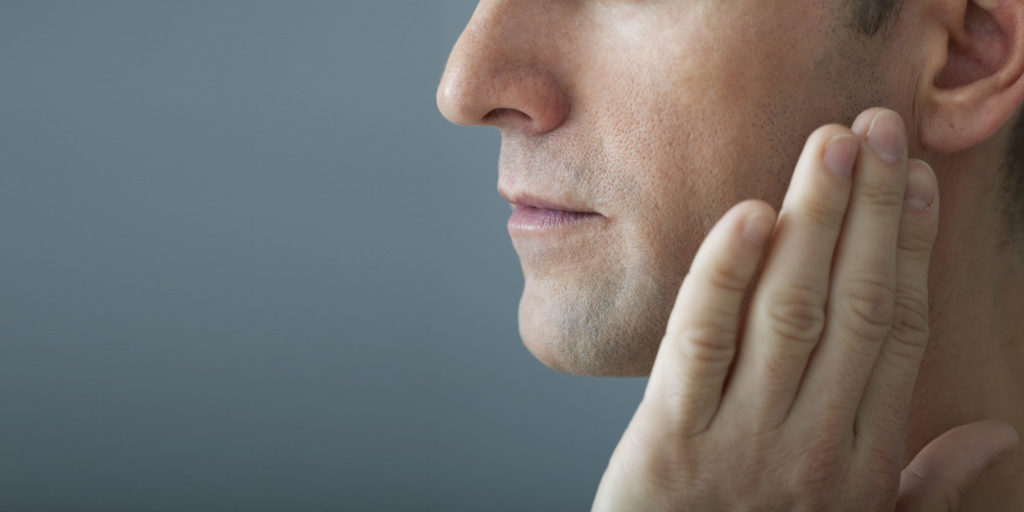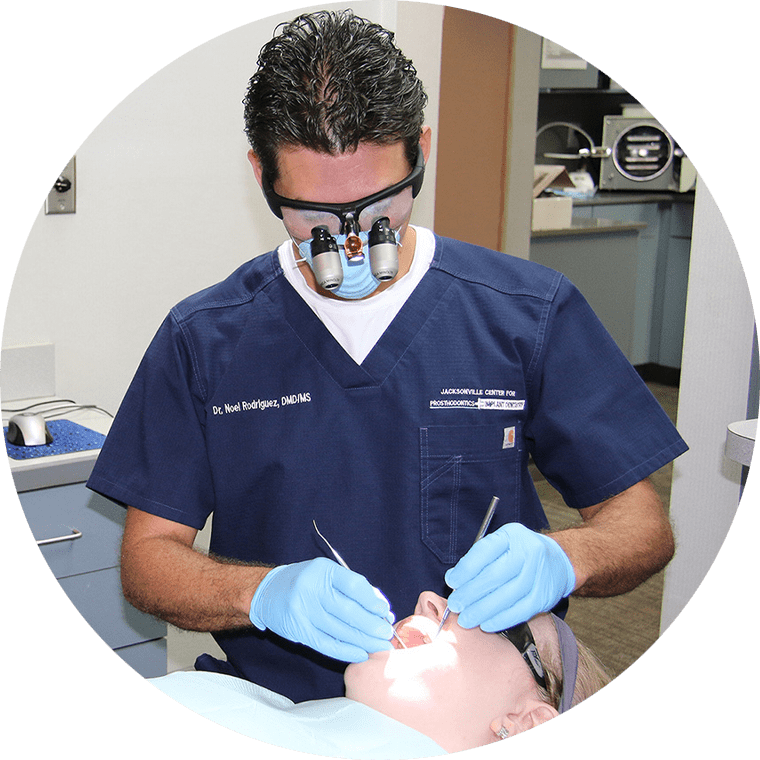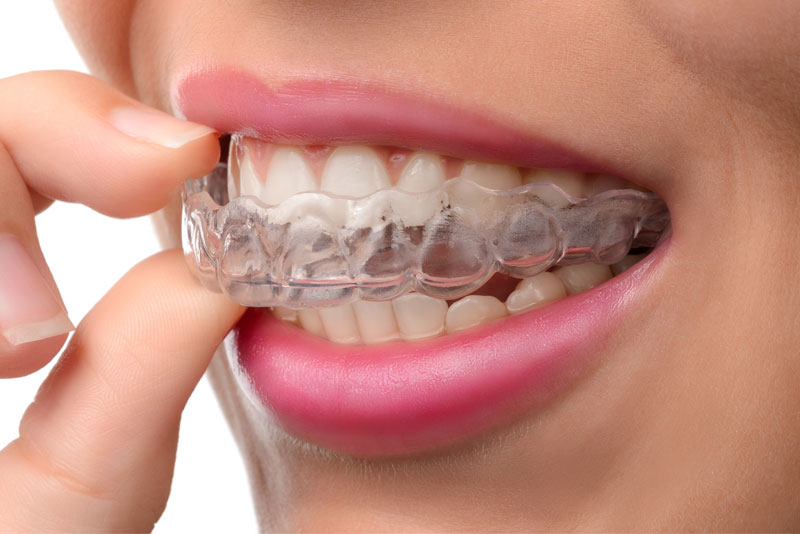Teeth Grinding/Bruxism - Jacksonville, FL
Grinding your teeth can destroy Your smile
Fortunately, we offer solutions

damaging your teeth with teeth grinding?
If you are like most people, you occasionally grind and clench your teeth. Occasional teeth grinding, medically called bruxism, does not usually cause harm. However, when teeth grinding occurs on a regular basis the teeth can be damaged and other oral health complications can set in. Although teeth grinding can be caused by stress and anxiety, it often occurs unconsciously during sleep and is more likely caused by an abnormal bite or missing or crooked teeth.
How Do I Tell If I Am Grinding My Teeth?
Most people are unaware that they grind their teeth during sleep, although their loved one may tell them if they hear it. However, a dull, constant headache or a sore jaw is a telltale symptom of bruxism. If you suspect you may be a teeth grinder, a consultation with the Specialists at the Jacksonville Center for Prosthodontics and Implant Dentistry is in order. They can examine your mouth and jaw for signs of bruxism such as jaw tenderness and teeth abnormalities.


Is teeth grinding harmful?
In some cases, chronic teeth grinding can result in a fracturing, loosening or loss of teeth. When this happens, bridges, crowns, root canals, implants, partial dentures and even complete dentures may be required. Not only can severe grinding damage your teeth and result in tooth loss, it can also adversely affect your jaws, result in hearing loss or cause or worsen temporomandibular disorders. Grinding can even change the appearance of your face.
Will a Mouthguard Help?
Yes! Our team can fit you with a mouth guard to protect your teeth from grinding during sleep. These plastic mouthpieces fit over the upper and lower teeth, preventing them from coming together, thus lessening the effects of clenching or grinding the teeth. They also correct the bite by positioning the teeth in their most correct and least traumatic position.

Find out how to protect your smile
Location
Address:
6855 Belfort Oaks Place
Jacksonville, FL 32216
Current Patient:
(904) 281-0658
Office Hours:
Mon-Wed : 8:00am – 5:00pm
Thurs : 7:00am – 11:00am
Fri : 8:00am – 5:00pm

